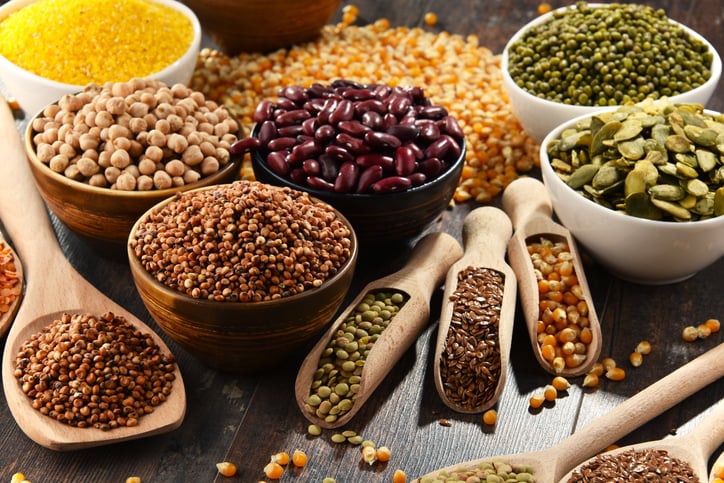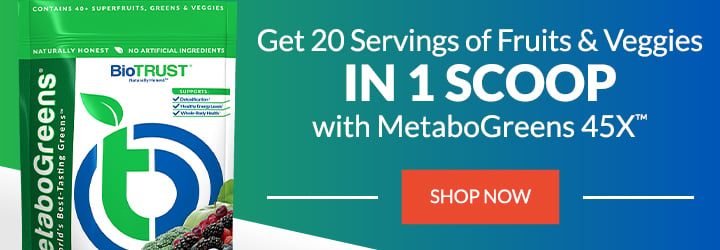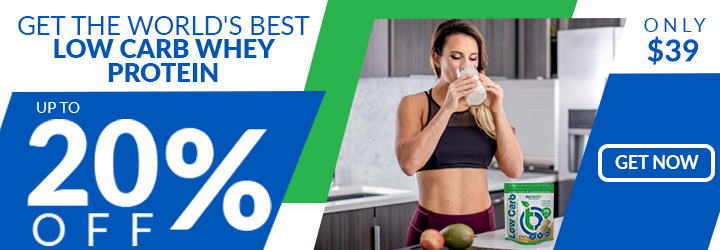The Top 5 Plant Based Proteins You Need to Add to Your Diet

When many people think of plant based proteins, they immediately think “vegetarian,” “soy,” or “bland.” But let’s be clear, you don’t need to be vegetarian or vegan to benefit from and enjoy plant proteins (which your vegetarian friends have likely been telling you for years…)
In truth, it would likely be good for all of us—for health, nutrient density, and sustainability—to incorporate more plants, including high-quality plant proteins, into our diets. In the famous words of influential author Michael Pollan, “Eat food. Not too much. Mostly plants.”
And the more high-protein options you have, the easier it is to consume about 0.7 grams of protein per pound of body weight per day, an amount (give or take a little) that appears to be a good target for optimizing body composition. High-protein nutrition plans have been shown to have a tremendous number of metabolic advantages, including:
- Increasing fat loss and preserving calorie-burning lean body mass when following a reduced-calorie diet
- Preventing weight regain after you’ve worked so hard to lose the weight
- Optimizing muscle protein synthesis
- Boosting metabolic rate
- Increasing feelings of fullness and satisfaction, reducing cravings, and improving appetite control
- And much more!
So here are 5 of our favorite plant based protein sources that are nutrient powerhouses to boot:
Top 5 Plant Based Proteins

1. Hemp and Pumpkin Seeds
3 tablespoons = ~ 11 grams of protein
With a mild, nutty flavor, these powerfully nutritious and delicious seeds are high in protein (25% of their total calories) and rich in healthy omega-3 fatty acids (at 30% fat). Interestingly, by weight, hemp seeds provide similar amounts of protein compared to beef and lamb.
And unlike many plant proteins, hemp seeds are considered a “complete” protein source as they provide all the essential amino acids, including lysine. (Amino acids are the building blocks of muscles, and essential amino acids are not produced in the body and, therefore, must be consumed.) Plus, it’s easier to digest than many other plant proteins (including nuts and legumes).
Whole hemp seeds provide plenty of both soluble and insoluble fiber. In addition, they provide Vitamin E, potassium, magnesium, calcium, iron, zinc, and other key minerals.
Super high in iron and magnesium, with higher levels of protein than chia or flax, is the humble pumpkin seed. It provides a full five grams of protein per ounce and supplies a wide range of nutrients from omega-3 fats to B vitamins to magnesium and zinc to essential amino acids, and more.
Like hemp seeds, pumpkin seeds are also high in fiber. Yet perhaps best of all is how incredibly portable pumpkin seeds (which also go by the name “pepitas”) are. With no required refrigeration, they’re an easy grab-and-go snack and an amazing source of plant based proteins.

2. Lentils
1 cup = 18 grams of protein
Quick and simple to prepare compared to other types of dried beans, lentils are another powerhouse of plant based proteins. With 25% protein, they have the second highest ratio of protein per calories of any legume (after soybeans). In addition, they’re packed with both soluble and insoluble fiber (at 11%, which helps maintain healthy blood sugar levels), important minerals (including magnesium and iron), folate, and several other B vitamins.
If you haven’t tried lentils, you’re seriously missing out. They’re extremely versatile, easy to make, and provide an abundance of antioxidants. And at least one study found that lentils were helpful in controlling appetite for an extra two to four hours, potentially helping improve weight loss.

3. Spirulina
2 tablespoons = 8 grams of protein
One of our favorite superfoods, spirulina is really, really rich in protein. In fact, it’s about 70% protein by dry weight, making it one of the most concentrated plant based proteins. It will add color—a deep bluish green—to any food you add it to. More importantly, it could end up being one of the most nutritious foods you add to your diet.
Spirulina is a blue-green microalga that offers all the essential amino acids (making it a “complete” protein), numerous vitamins (including B12, E, and beta-carotene), and key minerals (including calcium, magnesium, iron, and more). In addition, it has powerful antioxidant properties. We consider it “nature’s ultimate super food.”

4. Beans (black, chickpea, kidney, etc)
1 cup cooked beans = ~ 15 grams protein
With numerous varieties available canned, frozen, or dry, beans are exceptionally versatile and economical. They’re easy to find, store, and prepare. And they can instantly increase the protein and nutrient level in virtually any meal or recipe.
Again, in addition to being loaded with plant based proteins(a ½-cup of beans provides about the same amount as an ounce of meat, chicken, or fish), they’re loaded with fiber, which is a nutrition all-star. Dietary fiber promotes a healthy digestive tract and regularity, improves carbohydrate management (e.g., slowed gastric emptying), promotes satiety, reduces calorie intake, and enhances weight loss.
What’s more, beans contain ample amounts of vitamins, minerals, and antioxidants. They’re remarkably rich in copper, foliate, iron, and magnesium, which most Americans don’t consume enough of. Indeed, about 60% of the population fails to get enough magnesium from food while only about 15% of people get enough folate from food alone.
Researchers from Purdue found that folks who added beans to a reduced-calorie diet lost over three times more weight than a group who didn’t eat beans (yet consumed the same number of calories) over the course of 6 weeks. Beans are also a good source of resistant starch, which serves as a “prebiotic” fiber and may improve satiety, digestion, and insulin sensitivity.

5. Plant-Based Protein Supplements
When it comes to protein supplements, whey protein is often crowned king. Whether it’s due to dietary restrictions, milk intolerance, sustainability concerns, different nutritional profiles, or just looking for something different, more and more people are turning to plant-based protein supplements to help them meet their daily protein goals. Despite concerns about plant-based proteins being inferior to their milk-based counterparts, recent research suggests the differences may be insignificant.
For example, a study published in the Journal of the International Society of Sports Nutrition found that twice daily supplementation with 25 grams of pea protein led to similar changes in muscle size as whey protein supplementation when combined with a 12-week resistance training program. Another recent study showed that the addition of a digestive enzymes (a combination of proteases, which break down proteins, and alpha-galactosidase, which helps break down difficult-to-digest carbohydrates found in plants) to a rice and pea protein blend eliminated any difference in digestibility and protein quality between it and whey.
A good plant-based protein supplement usually combines pea protein along with other nutrient-dense sources, such as hemp and pumpkin, as well as digestive enzymes.
The next time you’re searching for a high-protein meal or snack, don’t forget the wonderful options in the world of plant based proteins. You’ll benefit not only from the increased protein but from the wide variety of flavors and textures and enhanced nutrition to help you look and feel great.







